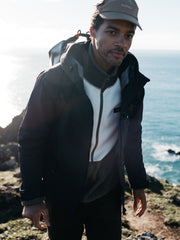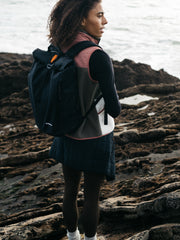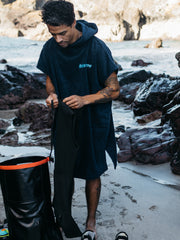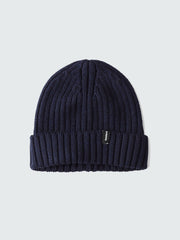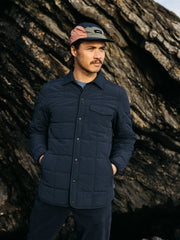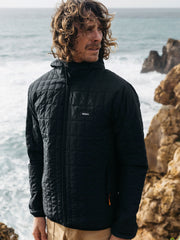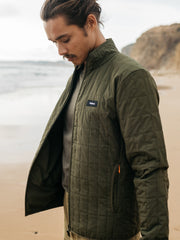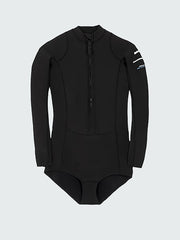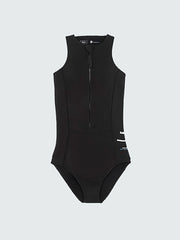A Tide Of Change | In Conversation With Chloë Peglau
10.09.21
4 min read
Interviewed by Zak Rayment
Images by David Gray
Film by Greg Dennis
How did you first get into outdoor adventure pursuits?
Well, I guess the first thing is that I’m just lucky to have been born in Cornwall. I was born on the Roseland but we moved to Falmouth when I was 5 or 6. I’d done a bit of surfing at school, just doing kids clubs and stuff, but not much. Later, I moved to Liverpool for Uni and joined the surf club there. (Which exists! Who knew?) We used to come down to Newquay every couple of weeks, as well as trips to Wales or Scarborough and places like that.
So it was actually through Uni that I really got into surfing. Kind of random that I grew up in Cornwall, left and then kept coming back to surf! Then I got into paddleboarding, simply because I couldn’t drive and get to the surf. I saw it happening in Falmouth, gave it a try and then eventually got a job at WeSUP there.
What about sailing? Because that can be harder to get into.
Yeah, sailing is a much more exclusive world. I actually got into it through my friend Max Campbell; he’s pretty experienced and at that point he’d already done a solo Atlantic crossing. We became close friends and he invited me to go sailing. He introduced me to Ed, who took me out quite a few times in the summer of 2019 to show me the ropes, so that side was all super recent. Before 2019 I think I’d sailed once in my life, and I didn’t really sail then, I just sat on the back of my uncle’s boat when I was 16!
So then basically I signed up to sail around the world before I’d even sailed a mile! (Check out un.tide on Instagram or read more about Chloe’s adventure here.)
You’re also a member of Black Voices Cornwall – can you tell us a little about the organisation, your role and the aims as a community?
It all came out of everything that happened last year around the George Floyd protests. The aim is to help Cornwall to become actively anti-racist and to become a voice for all ethnicities in the county. So, they’ve been doing really awesome work with the council, the NHS, the police service.
I’m starting a podcast for them – the Black Voices Cornwall podcast – which celebrates non-white people in Cornwall and I want it to be about all parts of the ethnic minority community here. Hopefully the aim is for people of colour who would be the listeners to see their experiences reflected, and for white people to understand these experiences and what people have gone through to become better informed.
What was your personal experience of growing up in Cornwall?
I had a very good childhood in Cornwall. My mum is from London but is half Ghanaian and half Maltese, and my dad is white American. My parents moved here in the 90s, and I’ve always thought that was a brave thing to do – moving to Cornwall at a time when there were practically no black people or people of colour.
My childhood was great, but I did always have this feeling of being different… I knew I was one of the only brown kids. I knew I wasn’t white. I’m lucky that I have light-skin privilege, and I think it’s important to acknowledge that. I mean, I have experienced some terrible malicious racism, but mostly I experience microaggressions – which are never said with the intention to cause harm, but they cause this residual feeling of constantly being the outsider. People would say things like, “oh, Chloë, you’re so tanned!” and I would be like “oh yeah…” but then you stop and you think, “wait, it’s not a tan… that’s just my skin!”
It’s hard, because the only identity that I can truly know is my Cornish identity. I was born here and I grew up here. My identity as a mixed-race person is so difficult to align – I’ve never met anyone with the same mix as me, so you can’t align with anything other than being ‘mixed-race’ – so being ‘Cornish’ is what it comes back down to. That is my strongest identity. So when that’s constantly being questioned, it’s really exhausting.
How important do you think representation is in encouraging more people from ethnic backgrounds to get involved in outdoor and ocean sports?
I think representation is important, but I do think there is more to it than that. It definitely helps, and it’s making things better. Seeing people of colour in the advertisements is meaningful, but you also have to tell their stories. You have to acknowledge what people have gone through to get there.
For me, I don’t just ‘go for a surf’ and head down to the water. If you’re a brown person, in your head whilst you’re doing that, there is an edge of wariness. It’s not all the time at all, but often it’s there. And that can’t be expressed in an image or a video with no sound. As nice as it is to see those images, that’s not the whole solution. For a white person, they just wouldn’t know about that, so I think you have to tell the stories too.
How do you think as a society we can improve access and increase participation in the outdoor and ocean space for all?
I think a lot of it comes back down to representation. I always found that, especially with sailing, because sailing is largely just rich white men. And it shouldn’t be, because anyone can do it! But I think that’s why I never sailed as a kid. My parents didn’t have access to it either, it just wasn’t part of our world. I probably could have gone to sailing lessons, but I just never thought it was something that I’d want to do.
And then with surfing… in South Africa you have maybe Mikey February? Then you think about all these surfers on the world tour and the places they go. Indonesia for example – why are there no Indonesians on the world tour? That’s weird. They have the best waves in the world! Think of Sri Lanka. All these places that have world class waves… There’s obviously a lot of Polynesian people from Hawaii, and they are people of colour and were very oppressed in Hawaii, but that’s kind of the closest you get in terms of representation. It’s the same in every situation though really. Science and technology for example. If you can’t see black people in these roles, you won’t see that as a template that you can follow.
There’s also a lot to be said about access to the ocean. It’s just not an equal playing field. Generally, the poorer communities, those that have to work more at lower paid jobs, they are by and large the more ethnically diverse communities, and that holds you back. Just stuff like kids being able to eat before they go to school! Where I work in Leeds there are literally bags of food going out to the kids at schools. How are any of these kids, if they can’t even eat properly, how are they going to be able to afford to go on the school trip to the seaside? How would they be able to go on a holiday in Cornwall and even see the sea?!
I see people talking about swimming and blue mind theory, and that’s all well and good but it’s such a privilege to be able to use the ocean to solve your mental health issues. It ignores the fact that loads of people don’t have access to it. Sure, people should swim every single day! But what have you had in your life that enables you to do that?
So it’s representation but access too; welcoming people into the communities and making them feel like they can belong there. And companies working with these groups to get their stories and message out there. It creates these safe spaces where you can go and do these things. I think that’s a way to improve it.



